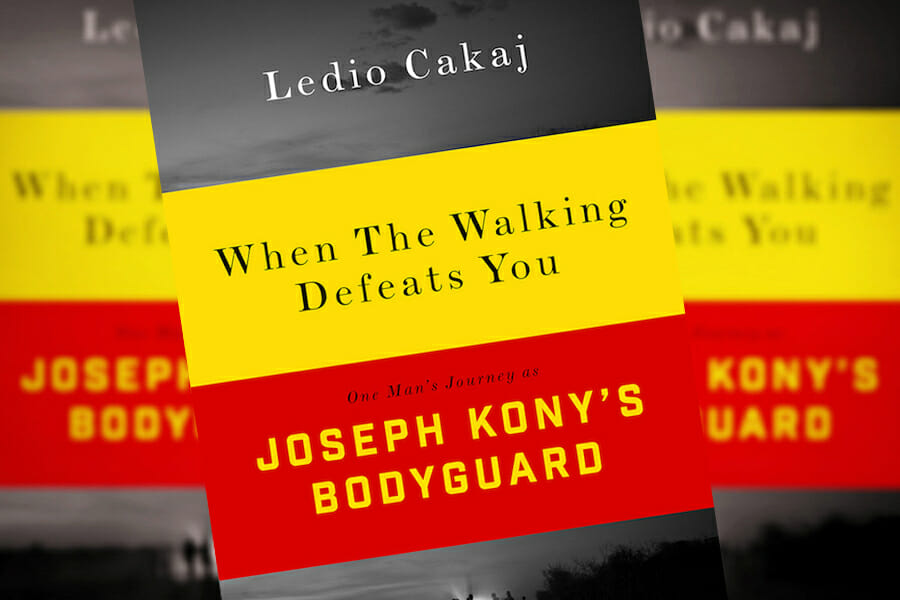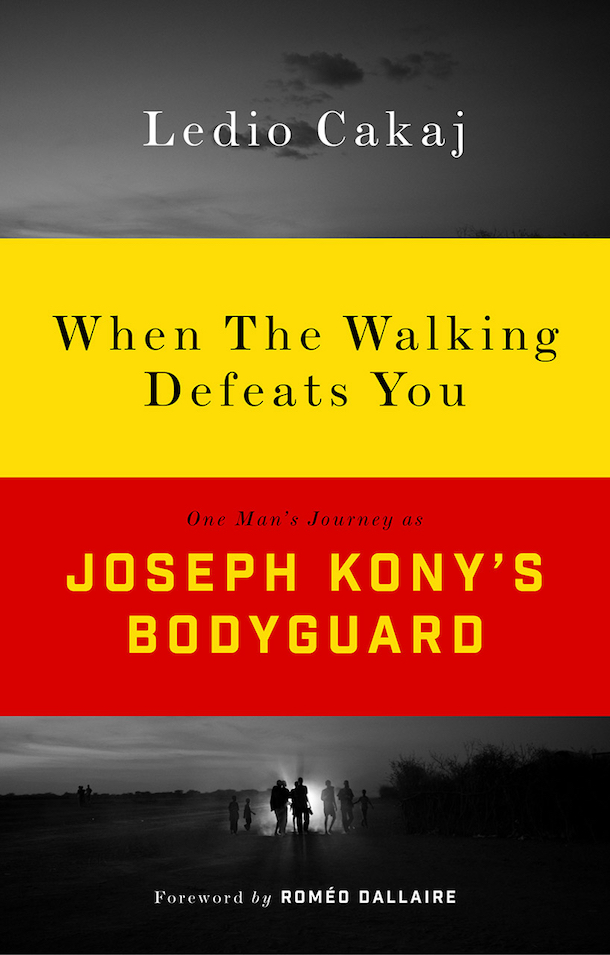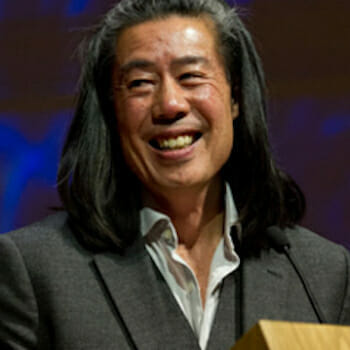
Books
In one of 2016’s Best Books, a Former Lord’s Resistance Army Child Soldier Reveals the Reason Behind the Mayhem
Rather than review the year gone by, I wanted in this column to look at a particularly haunting book, Ledio Cakaj’s When the Walking Defeats You. It’s narrated by a young Ugandan student, pseudonym “George,” who was expelled from school and sent by his own family to join and fight with the Lord’s Resistance Army (LRA). He became a bodyguard to the group’s infamous leader, Joseph Kony, who admired him for his learning.
It haunts me in particular as back in 1982, I wandered through many of the parts of Uganda that George describes. I was there as part of a desultory international effort to rehabilitate the country after the hellish reign of Idi Amin. I found almost everything, everywhere I went, from Kampala to Kasese, to Gulu, to Jinja, in ruins. Sometimes, I navigated by compass, as the roads had become so overgrown by vegetation that nothing on the maps was left.
When the still-reigning Yoweri Museveni won power in 1986, it briefly seemed as if Uganda had a chance at a new beginning – but when religious radical Alice Lakwena rose up violently against the government soon afterwards, it was clear that Uganda was doomed to many years of division and conflict.
Kony claims to be Lakwena’s successor. The West knows him simply for atrocities, among them the kidnapping of children – the boys forced to serve as child soldiers, the girls to be “wives” and concubines.
I used to imagine this motley crew walking around the wilds of northeastern Uganda and through the places I myself passed. Those memories drew me to Cakaj’s book, which chimes well with Christian Ryan’s 2012 book Children of War: Child Soldiers as Victims and Participants in the Sudan Civil War, based on her PhD thesis, which I supervised.
Before Christine went to South Sudan for a year of fieldwork, during which she essentially lived among the former child soldiers of a terrible conflict, the received wisdom, certainly among the aid agencies, was that they had all been victims. Christine talked to them often, and one day one of them broke down and began to cry. “Thank you for asking why we fought. No one has asked us before.” Many of them, though young, didn’t see themselves as only victims: they had had their own reasons for picking up guns.
The story George tells in Cakaj’s book confirms something similar: that as a very young soldier in Uganda, he also had his reasons and reflections, fears and hopes, pride and premonitions.
I have followed the conflict between Kony and Museveni for many years. I discussed it with the Ugandan officer who led the hunt for Kony, and asked: “Why? For what reasons?” To ascribe no reasons, no rationality, no belief, no principles for rebellion is a return to the old notion that Africans are mere savages – a racist device of dismissal and non-enquiry.
I myself wrote a fictional account of Kony’s rebellion in my 2012 novel, Joseph Kony and the Titans of Zagreb, in which I tried to demonstrate how the political machinations of a European capital city can be made to look just as atrociously ridiculous as a horrible rebellion in Africa. All you need to do is assume that the participants have put no reasoned thought into what they’re doing.
Hostage to the Holy Spirit
Very early on in Cakaj’s book, George explains that what often defeats the LRA’s young soldiers is the endless walking. A stationary army is a target, and the only way for the LRA to stay on the move is to walk for mile after mile every day.
George relates the killings along the way. He is anxious he is not asked to kill people by hand – that is, with a machete. To kill with a rifle, with a gap that reduces a terrible intimacy, is one thing. To butcher someone up close is harrowing precisely because it is not only atrocious, but atrociously intimate.
In the book’s most riveting moment, George gets the chance to talk with Kony himself. George is thankful he has been asked to cook; he serves alcohol with the meal, and it’s one of the very rare moments when Kony accepts a drink. The leader’s tongue loosens a little, and he relates his trust in the Holy Spirit, who always warns him when Museveni’s forces are near. He shows his battle scars. He talks politics, and laments how Museveni has ruined Uganda.

When the other officers leave him and George alone, Kony asks after George’s uncle. He praises George’s love of books, and congratulates him on the good grades he had been receiving in school – and then he makes two confessions: “You need to know that if I had a choice I would not be doing this, this life in the forest like animals. I wish I could be a schooled man like you.”
He also wishes aloud that his children could go to school, saying: “It is too late for me. I have all the wisdom in the world, thanks to the spirits who tell me everything.”
But then Kony tells George he’s a hostage to these same spirits, bound to act on their instruction and instigation. Above all, he is captive to the Holy Spirit, who calls him to keep his army and his rebellion going – fighting, killing, and walking to their deaths.
Kony is to this day a hero to many of Uganda’s Acholi people, who feel marginalised under Museveni’s rule. Looked at in a particular way, he is perhaps not so unlike Joan of Arc, who also heard the voices of spirits; the English demonised her before finally capturing and burning her alive. Wanted worldwide for his heinous crimes, long since driven from Uganda and isolated with his greatly diminished forces, Kony is more likely to fade away.
George’s telling is very much a narration of an encounter, not a psychological or intellectual inquiry. But it isn’t cheap or glib, and the book as a whole raises profund questions. Perhaps there are reasons why children fight – and perhaps even why madmen fight.
This article was originally published on The Conversation. Read the original article.

